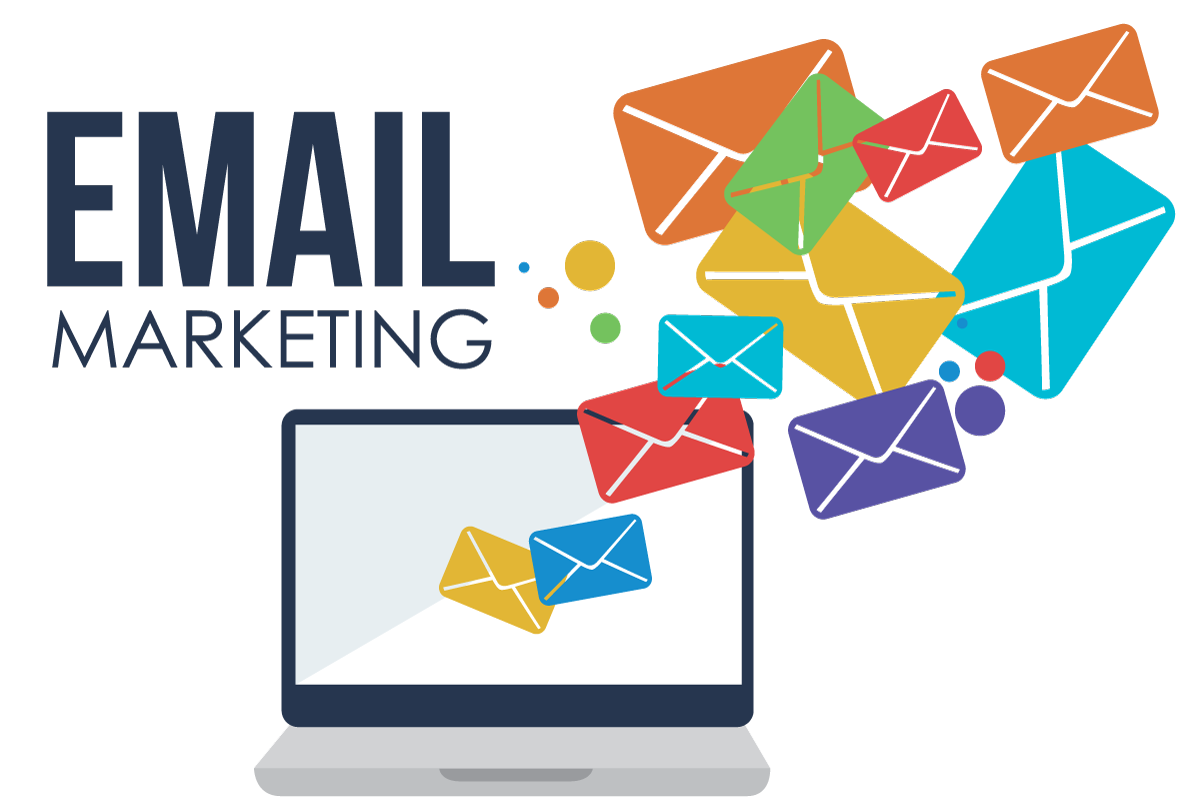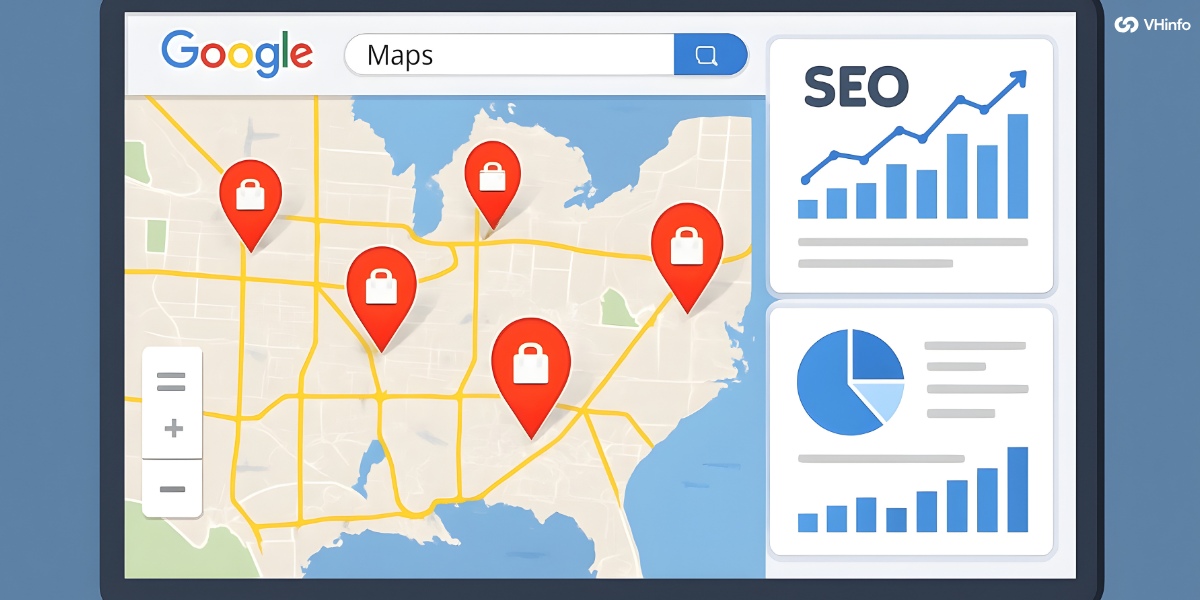Are you interested in a dynamic, creative career that blends strategy, communication, and technology? Marketing could be the perfect fit for you. But how do you get into marketing, especially if you don’t have a degree or experience in the field?
In this comprehensive guide, we’ll break down everything you need to know to launch a successful marketing career, from the skills and experience you need to the different types of marketing jobs available.
Whether you’re a recent graduate, a career changer, or a sales professional looking to transition into marketing, we’ve got you covered.
What Do You Need For a Marketing Career?

Skills
To succeed in a marketing job, you’ll need a diverse skill set that includes both hard skills (like data analysis and project management) and soft skills (like creativity and adaptability).
Some of the most important marketing skills include:
- Communication: Writing, public speaking, active listening
- Analytical thinking: Data analysis, market research, problem-solving
- Creativity: Brainstorming, storytelling, visual design
- Digital literacy: Social media, email marketing, search engine optimization (SEO)
- Business acumen: Strategic planning, budgeting, ROI analysis
The good news is that many of these skills are transferable from other fields, and you can also develop them through online learning, side projects, and on-the-job training.
Experience
While a marketing degree can give you a solid foundation, real-world experience is just as valuable (if not more so) to employers.
Some ways to gain marketing experience include:
- Internships: Many companies offer paid or unpaid marketing internships for students and recent grads.
- Freelance projects: You can build your portfolio by taking on freelance marketing projects for small businesses, nonprofits, or personal brands.
- Volunteer work: Offer your marketing skills to a cause you care about, like promoting a charity event or managing a community organization’s social media accounts.
- Personal branding: Showcase your marketing chops by building your own personal brand online through a blog, social media, or portfolio website.
Education
While a marketing degree can be helpful, it’s not always necessary to break into the field. Many successful marketers have backgrounds in other areas like psychology, English, or business.
That said, if you do want to pursue formal education in marketing, here are some options:
- Bachelor’s degree in marketing, communications, or a related field
- MBA with a concentration in marketing
- Professional certifications like HubSpot Inbound Marketing or Google Ads
How to Get into Marketing?

Now that you know what it takes to succeed in marketing, let’s dive into some practical steps you can take to break into the field.
1. Determine Your Area Of Focus
Marketing is a broad field with many different specialties, from content marketing and social media to product marketing and analytics.
To focus your job search and skill development, think about which areas of marketing interest you most. Consider your strengths, passions, and career goals.
For example, if you love writing and storytelling, content marketing could be a great fit. If you’re more analytical and tech-savvy, you might prefer digital marketing or growth marketing.
2. Research
Once you have a sense of your desired focus area, start researching the industry and the job market. Follow marketing blogs and influencers, join online communities and forums, and attend virtual or in-person events. This will help you stay up-to-date on the latest trends, tools, and best practices, as well as connect with potential mentors or employers. Leveraging a Qooper mentoring solution can help you connect with experienced mentors, track your learning progress, and receive personalized guidance tailored to your career goals.
3. Learn New Skills
To make yourself a competitive candidate, invest in developing the skills that are most in-demand for your target marketing roles. Take advantage of free or low-cost online courses, tutorials, and certifications from platforms like HubSpot Academy, Coursera, and LinkedIn Learning. Focus on practical, hands-on learning that you can apply to real projects. In particular, learning areas like SEO, content creation, and LinkedIn management can be incredibly valuable, especially if you’re targeting digital marketing or B2B roles. With marketing trends shifting swiftly, AI digital marketing is becoming a key force in how campaigns are planned and optimized. Enrolling in an AI digital marketing course helps you gain practical exposure to these tools and stay aligned with current industry expectations.
4. Start A Blog
One of the best ways to demonstrate your marketing chops is to start your own blog. Many successful marketers have used their blogs to land remote content marketing jobs, showcasing their skills to a broader audience. Choose a niche that aligns with your interests and career goals, and commit to publishing high-quality, valuable content on a regular basis.
As you build your audience and engagement, you’ll have a tangible asset to showcase to potential employers or clients. Plus, blogging is a great way to practice essential marketing skills like writing, SEO, and analytics.
5. Look For Freelance Opportunities
To gain real-world experience and build your portfolio, consider taking on freelance marketing projects. Reach out to small businesses, startups, or nonprofits in your network and offer your services at a discounted rate or even for free at first.
As you build your reputation and client base, you can start charging more for your work. Freelancing is also a great way to explore different areas of marketing and figure out what you enjoy most.
6. Find and Apply For Marketing Roles
When you feel ready to start applying for full-time marketing jobs, focus your search on entry-level or junior roles that match your skills and interests. Use job boards like Indeed, LinkedIn, and niche sites like AngelList or Mediabistro. Tailor your resume and cover letter to each position, highlighting your relevant skills and experiences. Don’t be afraid to apply for roles that seem like a stretch – many employers are willing to train the right candidate.
7. Get Creative On Your Resume
To stand out in a competitive job market, get creative with your resume builder and application materials. Then, AI apply for jobs to streamline the process and find marketing vacancies that best meet your needs. Instead of a traditional resume, consider creating a video resume, an infographic, or an interactive portfolio. Showcase your personality, creativity, and passion for marketing.
For example, if you’re applying for a social media role, create a mock social media campaign for the company and include it in your application.
How to Get a Marketing Job With No Experience?

If you’re just starting out in your marketing career and don’t have any formal experience, don’t worry – there are still plenty of ways to break into the field. Here are some tips:
1. Start a Side Project
One of the best ways to gain marketing experience is to start your own side project. This could be a blog, a YouTube channel, an Instagram account, or an e-commerce store. Choose a topic or niche that you’re passionate about and start creating content, building an audience, and experimenting with different marketing strategies. Not only will this give you hands-on experience, but it will also demonstrate your initiative and creativity to potential employers.
2. Figure Out What Field You’re More Curious About
Marketing is a broad field with many different specialties, from content creation and social media to email marketing and analytics.
To focus your job search and skill development, think about which areas of marketing interest you most. Consider your strengths, passions, and career goals.
For example, if you love writing and storytelling, content marketing could be a great fit. If you’re more analytical and tech-savvy, you might prefer digital marketing or growth marketing.
3. Take a Course (Marketing Certifications Optional)
To build your marketing skills and knowledge, consider taking an online course or earning a certification. There are many free or low-cost options available, such as HubSpot Academy, Google Analytics Academy, and Hootsuite Academy.
While certifications aren’t always necessary, they can demonstrate your commitment to learning and help you stand out to potential employers. Focus on courses that teach practical, hands-on skills that you can apply to real projects.
4. Build Up Your Resume
Even if you don’t have formal marketing experience, you can still highlight relevant skills and experiences while building your resume. Think about projects or activities where you’ve demonstrated skills like writing, creativity, data analysis, or project management.
For example, if you’ve planned events for a student organization or volunteer group, you can showcase your event marketing skills. If you’ve created content for a personal blog or social media account, include links to your best work.
5. Apply For An Internship
Internships are a great way to gain hands-on marketing experience and make connections in the industry. Many companies offer paid or unpaid marketing internships for students and recent grads. Look for opportunities that align with your interests and career goals, and be prepared to work hard and learn as much as you can. Even if an internship doesn’t lead to a full-time job offer, it can still provide valuable experience and references for your future Using AI in your job search.
6. Apply to a Job at an Agency
Marketing agencies can be a great place to start your marketing career, especially if you’re interested in working with a variety of clients and projects. Agencies often hire entry-level employees and provide on-the-job training and mentorship.
Look for agencies that specialize in your area of interest, such as digital marketing, content creation, or public relations. Be prepared to start in a junior role and work your way up as you gain experience and prove your value.
7. Apply to a Job In-House
If you prefer to focus on a single brand or product, consider applying for an in-house marketing role at a company. Many companies have their own marketing departments that handle everything from social media and email marketing to brand awareness and product marketing.
Look for entry-level roles like marketing coordinator or assistant, and be prepared to take on a variety of tasks and responsibilities. In-house roles can provide great opportunities for growth and advancement within the company.
Do I Need a Marketing Degree?

While a marketing degree can provide a solid foundation of knowledge and skills, it’s not always necessary to succeed in the field.
Many successful marketers have backgrounds in other areas like psychology, English, or business. What matters most is your ability to think critically, communicate effectively, and learn quickly. Getting hands-on experience through industrial training in Chandigarh can also give you a strong start and build real-world skills. WordPress LMS plugin empowers educators to deliver engaging content that develops critical thinking and communication abilities while streamlining the learning process.
That said, if you do want to pursue formal education in marketing, here are some options:
- Bachelor’s degree in marketing, communications, or a related field
- MBA with a concentration in marketing
- Professional certifications like HubSpot Inbound Marketing or Google Ads
Ultimately, the decision to pursue a marketing degree depends on your career goals, learning style, and resources. If you’re not sure, consider starting with a few online courses or certifications to see if marketing is a good fit for you before committing to a full degree program.
How Do You Become a Marketer?

Becoming a marketer involves a combination of education, experience, and skill development.
Here are some steps you can take to launch your marketing career:
Step 1: Earn an Undergraduate Degree in Marketing
While not always required, a bachelor’s degree in marketing or a related field can provide a strong foundation for your marketing career. Look for programs that offer a mix of theoretical and practical coursework, as well as opportunities for internships or real-world projects.
Step 2: Get an Entry-Level Marketing Job
After earning your degree, look for entry-level marketing jobs that align with your interests and skills. These might include roles like marketing coordinator, social media assistant, or content writer. Be prepared to start at the bottom and work your way up as you gain experience and prove your value.
Step 3: Consider a Master of Marketing
If you want to advance your marketing career or specialize in a particular area, consider pursuing a master’s degree in marketing. This can provide advanced knowledge and skills, as well as networking opportunities and career support. A master’s program in marketing enhances your strategic thinking and equips you with advanced skills to excel in leadership roles within the industry. Programs such as the Washington D.C MBA program will help propel your career forward with the skills to drive innovation and growth.
Step 4: Get a Job in Marketing
As you gain experience and build your skills, look for opportunities to take on more responsibility and advance your marketing career. This might involve moving into a management role, switching to a new company or industry, or starting your own marketing business.
Step 5: Consider Continuing Your Education or Earning a Specialization
Marketing is a constantly evolving field, so it’s important to stay up-to-date on the latest trends and best practices. Consider pursuing continuing education opportunities like workshops, conferences, or online courses. You may also want to earn a specialization in a particular area of marketing, such as digital marketing, content marketing, or analytics.
Marketing Jobs

There are many different types of marketing jobs available, depending on your skills, interests, and experience level.
Here are some of the most common roles:
1. Digital Marketing Manager

Digital marketing managers oversee a company’s online marketing efforts, including website, social media, email marketing, and digital advertising. They develop and implement digital marketing strategies to drive traffic, engagement, and conversions.
2. Search Engine Optimization (SEO) / Search Engine Marketing (SEM) Specialist

SEO and SEM specialists focus on improving a company’s visibility and ranking on search engines like Google. They use techniques like keyword research, on-page optimization, link building, and paid advertising to drive organic and paid traffic to a website.
3. Email Marketer

Email marketers create and send targeted email campaigns to a company’s subscribers or customers. They use segmentation, personalization, and automation to deliver relevant, engaging content that drives opens, clicks, and conversions.
4. Growth Marketer

Growth marketers focus on driving rapid, sustainable growth for a company through a combination of marketing, product, and data strategies. They use experimentation, optimization, and cross-functional collaboration to identify and scale high-impact growth opportunities.
5. Content Marketer

Content marketers create and distribute valuable, relevant content to attract and engage a target audience. This can include blog posts, articles, ebooks, infographics, videos, and more. They use content marketing to build brand awareness, generate leads, and nurture customer relationships.
6. Marketing Copywriter / Content Writer

Marketing copywriters and content writers create written content for a variety of marketing channels, such as websites, social media, email, and advertising. They use persuasive, engaging language to communicate a brand’s message and drive action from the reader.
7. Graphic Designer

Graphic designers create visual content for marketing materials, such as logos, brochures, infographics, and social media graphics. They use design principles and software to create eye-catching, on-brand visuals that support marketing goals.
8. Content Creator

Content creators produce various types of content, such as videos, podcasts, and social media posts, to engage and entertain a target audience. They use creativity, storytelling, and multimedia skills to create compelling content that resonates with viewers or listeners.
9. Social Media Marketer

Social media marketers manage a company’s presence and engagement on social media platforms like Facebook, Twitter, Instagram, and LinkedIn. They create and curate content, respond to comments and messages, run social media ads, and analyze performance metrics.
10. Community Manager

Community managers foster and moderate online communities around a brand or product, such as forums, Facebook groups, or Reddit threads. They engage with members, answer questions, resolve issues, and create a positive, supportive environment for fans and customers.
11. Conversion Rate Optimization (CRO) Specialist

CRO specialists focus on improving the percentage of website visitors who take a desired action, such as making a purchase or filling out a form. They use data analysis, user testing, and experimentation to identify and remove barriers to conversion.
12. Product Marketer

Product marketers are responsible for bringing new products to market and driving adoption and sales. They work closely with product, sales, and other marketing teams to develop positioning, messaging, and go-to-market strategies.
13. PR Manager

PR managers handle a company’s public relations efforts, including media outreach, press releases, and crisis communication. They build and maintain relationships with journalists, influencers, and other stakeholders to shape the company’s public image and reputation.
14. Brand Marketer

Brand marketers are responsible for creating and maintaining a consistent brand identity across all touchpoints, from logo and packaging to website and social media. They develop brand guidelines, messaging, and creative assets to build brand awareness and loyalty.
15. Event Marketer

Event marketers plan and execute events, such as conferences, trade shows, and product launches, to engage customers and prospects in person. They handle logistics, promotion, and follow-up to ensure a successful event that drives business results.
16. Ecommerce Marketing Specialist

E-commerce marketing specialists focus on driving traffic and sales to an online store through a variety of channels, such as search engine, social media, email, and affiliate marketing. They optimize product pages, run promotions, and analyze sales data to improve performance.
17. Marketing Analyst

Marketing analysts use data and analytics to measure and optimize marketing performance. They collect and analyze data from various sources, such as web traffic, social media metrics, and sales data, to provide insights and recommendations to marketing teams.
18. Marketing Strategist

Marketing strategists develop and oversee a company’s overall marketing strategy and plan. They conduct market research, set goals and KPIs, allocate budgets, and coordinate the efforts of different marketing teams and channels to achieve business objectives.
FAQ’s:
Can You Learn Marketing on Your Own?
Yes, it’s possible to learn marketing on your own through a combination of online resources, practical experience, and self-study.
There are many free or low-cost courses, tutorials, and certifications available online, as well as books, blogs, and podcasts that cover various aspects of marketing. The key is to be proactive, curious, and willing to experiment and learn from your mistakes.
Start by identifying the areas of marketing that interest you most, such as content marketing, social media, or email marketing.
Then, seek out resources and opportunities to learn and practice those skills, such as creating your own blog or social media account, volunteering to help with a local business’s marketing efforts, or taking on freelance projects.
Over time, you can build a portfolio of work that demonstrates your knowledge and experience to potential employers or clients.
How Do I Know if Marketing Is For Me?
If you enjoy creative problem-solving, strategic thinking, and communicating with others, marketing could be a great fit for you.
Consider your strengths, interests, and career goals, and look for opportunities to explore different aspects of marketing through coursework, internships, or side projects.
Is Marketing Hard To Get Into?
Like any competitive field, breaking into marketing can be challenging, especially if you don’t have a related degree or experience.
However, with the right combination of skills, passion, and persistence, it’s possible to launch a successful marketing career. Focus on building practical skills, networking with others in the industry, and creating a strong portfolio of work.
Which Field of Marketing Makes the Most Money?
Salaries in marketing vary widely depending on factors like location, industry, experience level, and specialization.
However, some of the highest-paying marketing jobs tend to be in areas like product marketing, brand management, and digital marketing, especially in industries like technology, healthcare, and finance.
What Skills Do You Need to Work in Marketing?
To succeed in marketing, you need a combination of hard skills (like data analysis and copywriting) and soft skills (like creativity and communication).
Some of the most important skills for marketers include:
- Communication
- Creativity
- Analytical thinking
- Digital literacy
- Business acumen
What is the Fastest Way to Become a Marketer?
The fastest way to become a marketer is to start gaining practical experience as soon as possible.
This could involve:
- Taking on freelance projects
- Starting your own side project (like a blog or social media account)
- Volunteering to help with marketing efforts for a local business or nonprofit
- Applying for entry-level marketing jobs or internships
How Do I Become a Marketer Without a Degree?
While a marketing degree can be helpful, it’s not always necessary to launch a marketing career.
To become a marketer without a degree, focus on:
- Building practical skills through online courses, certifications, and self-study
- Gaining hands-on experience through freelance work, side projects, or internships
- Networking with others in the industry and building relationships
- Creating a strong portfolio of work that showcases your skills and results
Conclusion
Getting into marketing can be a rewarding and challenging journey, but with the right combination of skills, experience, and persistence, it’s possible to launch a successful marketing career.
Whether you’re a recent graduate, a career changer, or a sales professional looking to transition into marketing, there are many paths you can take to break into the field.
Start by identifying your strengths, interests, and goals, and then seek out opportunities to learn and gain hands-on experience.
Take advantage of online resources, network with others in the industry, and don’t be afraid to start small with freelance projects or side hustles. Over time, you can build a strong foundation of skills and a portfolio of work that will help you stand out to potential employers and clients.
Remember, marketing is a constantly evolving field, so it’s important to stay curious, adaptable, and willing to learn. With hard work, creativity, and a passion for connecting with others, you can build a fulfilling and successful career in marketing.



